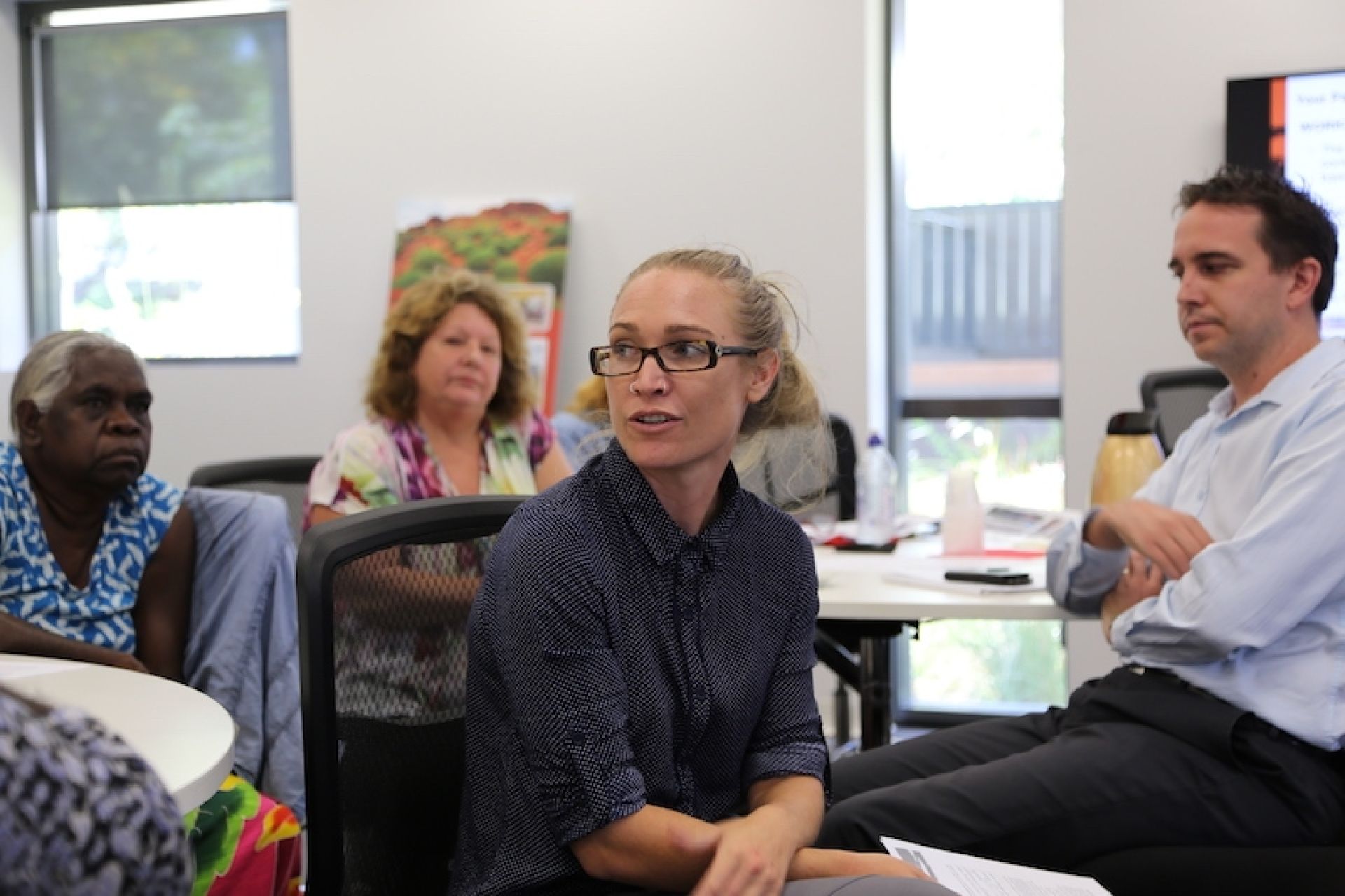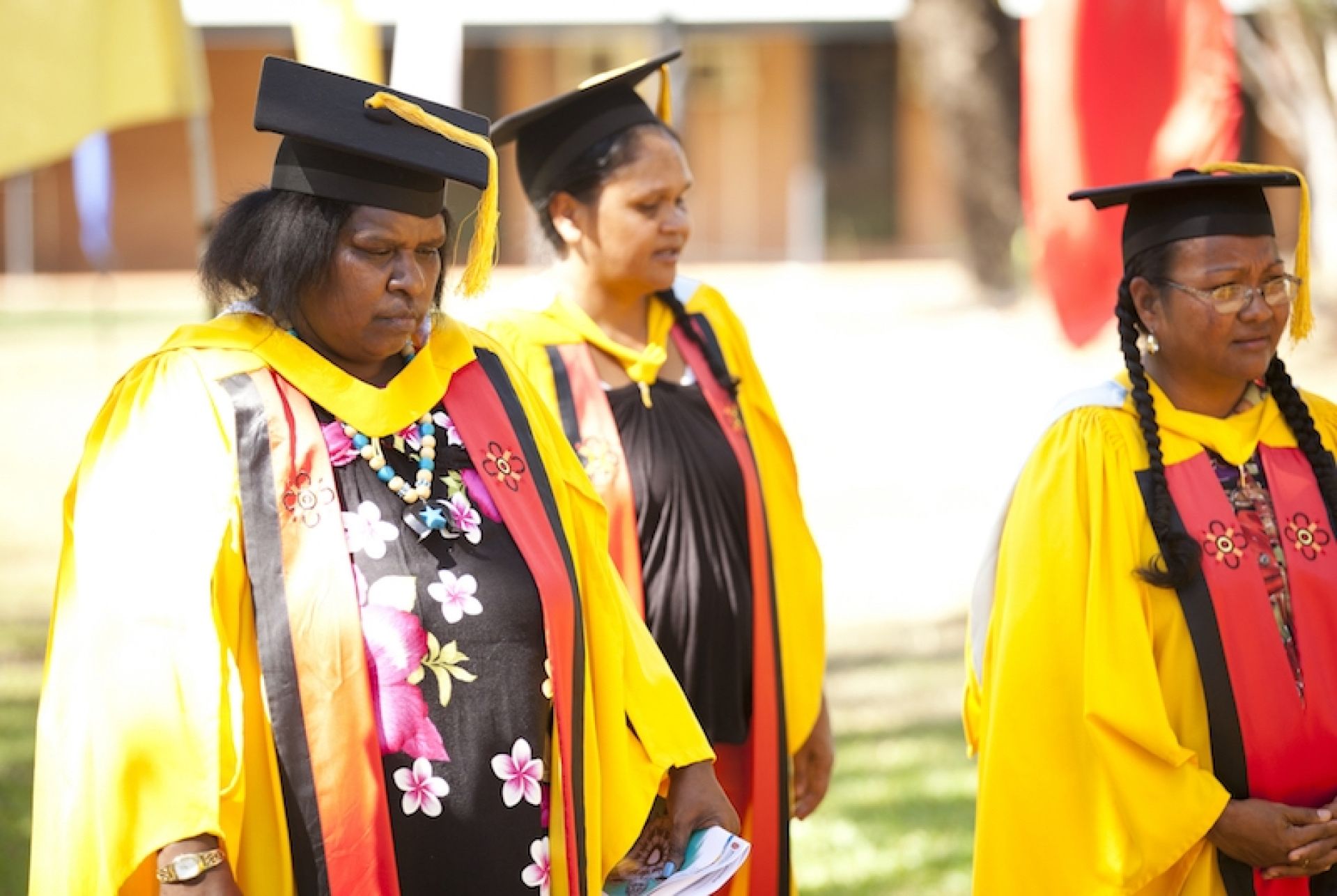

A recently completed research project from Batchelor Institute’s Higher Education and Research Division has cast new light on employment pathways and barriers for Aboriginal and Torres Strait Islander peoples in remote Australia.
The end of June marked the completion of a four-year long research project conducted by Principal Research Leader at Batchelor Institute Dr Eva McRae-Williams.
Pathways To Employment began in 2012 and explored issues around how Aboriginal people residing in remote communities navigate their way into meaningful livelihoods, the kind of work that provides sustainable employment outcomes and the types of training and education that could support this.
The project’s outcomes have challenged a number of longstanding assumptions around employment pathways, programs and policies targeting Aboriginal and Torres Strait Islander peoples living in remote areas around Australia.
In particular, the research highlighted a number of misconceptions around perceived ‘problems’ with Aboriginal and Torres Strait Islander unemployment in very remote Australia.
“The pathways project as been a great experience. It has been a privilege to have time to deeply understand and critically engage with pathways to employment policies and programs and the lived experiences of peoples living in very remote Australia,” said Dr McRae-Williams.
“The project has highlighted again for me the power of mainstream cultural assumptions, their hold over us and the influence they can have on the livelihood opportunities of others. At the end of this experience I think there is a real need to challenge constructs of deficit and disadvantage and develop our capacities for recognising, strengths and opportunities.”
Pathways To Employment found that there is a real economy to very remote Australia. However, a disproportionate amount of non-Indigenous workers are experiencing the majority of this economy’s benefits. Non-Indigenous workers, despite only constituting 57% of the local population, make up over 80% of the workforce.
It also suggests that the issues around Aboriginal and Torres Strait Islander unemployment are not simply a reflection of educational disadvantage and that non-Indigenous workers do not hold the majority of jobs because they have more education or training.
The data found that 46% of the whole workforce in very remote Australia and 36% of the non-Indigenous workforce had not completed a certificate or higher education, with many leaving school at Year 10. The research also found that despite rising educational levels in Indigenous Australians in very remote Australia, employment outcomes are not following the same upward trend.
Overall the research demonstrated the need for localised investment and client-based buy in to improve employment outcomes for Indigenous peoples in very remote Australia. Furthermore, it demonstrated that deficit models of engagement by employers, policies and stakeholders tend to see local strengths as barriers to overcome, or fail to recognise them completely.
“More of the same is not good enough,” said Dr Eva McRae-Williams. “If improvements in employment outcomes are to be achieved it is imperative that we don’t shy away from risk and embrace innovative program design, development and implementation. Local aspiration, investment and voice, however, must be positioned as central in such innovation.”
The research project was a part of the Cooperative Research Centre for Remote Economic Participation (CRC-REP), a Commonwealth funded initiative, managed by Ninti One Ltd.

